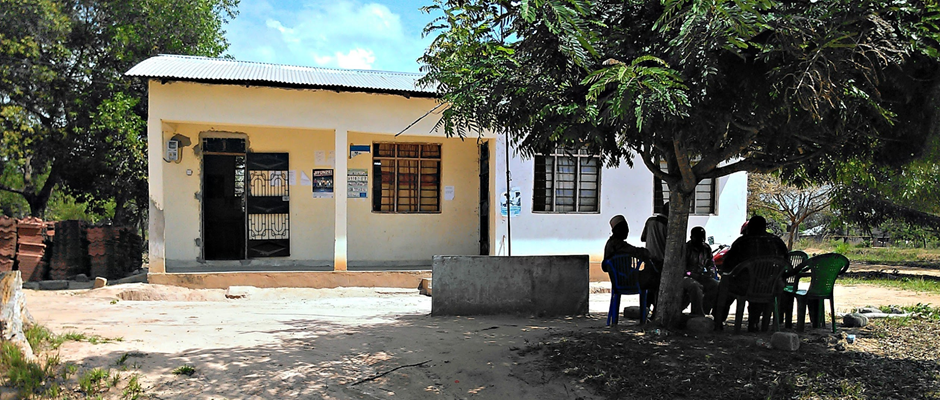
Decentralization reforms and local democratic governance have attracted significant attention as a way to promote good governance and accountability at the local level. Established theories in economics and political science have articulated the efficiency and accountability gains that could accrue from decentralization reforms. However, the empirical literature is full of examples of failures or mixed results in delivering these gains. The underlying contention of this report is that both the theory and the practice of decentralization have suffered from a partial and fragmented approach, undermining the comprehensive and strategic sequencing required for well-designed decentralization reforms.
This report recommends that there is a need to take a step back and evaluate the framework of actual decentralization reforms instituted in decentralizing countries before evaluating their impact. In our view, decentralization is a multi-faceted process which includes giving discretion to local governments and establishing accountability mechanisms at three different levels of governance – political, administrative and fiscal. Therefore, the analysis of the decentralization reforms should also be based on an inter-disciplinary approach, as argued in World Bank (2008).
The report employs a diagnostic framework introduced in World Bank (2008). The key elements of the framework include:
- Decentralization reforms grant local governments new powers and responsibilities in three dimensions: political, administrative, and fiscal. These dimensions provide discretionary space to local governments.
- Ensuring appropriate use of such discretionary space requires introducing effective accountability systems. Within their discretionary space, local governments would be accountable to higher levels of government (upward accountability) as well as to citizens (downward accountability).
- Public accountability mechanisms safeguard against misuse and abuse of local discretion, but they have imperfections. New forms of social accountability mechanisms, which enable direct engagement of citizens with government, emerge to complement public accountability mechanisms.
- Public and social accountability approaches must be bridged to ensure that citizens have the ability and opportunity to demand accountability and that local governments have the means and incentives to respond to citizen demands for accountability and better service delivery.
This framework is applied to ten countries and two sectors and use case studies as the primary data collection tool, as case studies provide detailed contextual analysis of political,
administrative and fiscal aspects of decentralization The countries identified for country case studies are Angola, Ethiopia, Tanzania, Uganda, Kerala/India, Philippines, Guinea, Burkina Faso, Rwanda and Punjab/Pakistan. The sectors identified are health and education.
MAIN FINDINGS OF COUNTRY AND SECTOR CASE STUDIES
The review of the case studies suggests that the actual decentralization reforms do not fare well on many assessment criteria of a well-designed decentralization system. In addition to the insubstantial discretion available to the local governments, accountability mechanisms are also not well developed. In most countries, social accountability mechanisms that are essential to make local governments downwardly accountable to citizens have been largely missing in favor of public accountability instruments that promote upward accountability towards higher levels of government.
Significant variations exist in terms sequencing of reforms in political, administrative and fiscal domains. The sequencing varies depending on the intended outcomes and the interests of political leadership. There are countries such as Ethiopia and Kerala, where fiscal reforms preceded administrative and political ones. In Punjab and Tanzania, political decentralization has superseded administrative and fiscal reforms.
In terms of discretion in the three aspects of governance, the main findings of the country-case studies are:
• Political reforms—despite many weaknesses, elections remain the principal method through which eligible local citizens can have a voice in service delivery and can hold decision-makers accountable. The case-studies show that political discretion in the absence of appropriate checks and balances can result in local elite capture, single party domination, and nepotistic practices. A variety of social accountability mechanisms are employed to address some of political accountability failures, however outcome depends on the country context.
• Administrative reforms—even when political and fiscal devolution proceed quickly, administrative changes in many contexts have only been understood in terms of deconcentration.
• Fiscal reforms—defining roles and responsibilities among different levels of governments for fiscal functions including budget preparation, budget allocation, expenditure planning, and revenue generation. fiscal has proven to be difficult. A major issue is unclear assignment of service delivery responsibilities. The case-studies also show that local governments are particularly unable to raise their own revenues either due to insufficient discretion to do so or due to lack of capacity.
Decentralization reforms in many contexts failed to create a more participatory environment at the local level. Decentralization can be an effective tool for better service delivery and better democratic governance. Yet even when they are labelled “democratic,” decentralization reforms have rarely bred empowered democratic local authorities.
Discretion and accountability relationships depend on the political-economy of each country, and historical/colonial legacies. The colonial legacies particularly play an important role in the progression of decentralization reforms. In examples from Francophone Africa, such as Guinea and Burkina Faso, the existing tutelle.
Even in countries with highly developed rules and regulations, significant gaps exist between de jure and de facto practices. There remains a significant disjuncture between laws and practices largely due to a) lack of sufficient incentives of both central and local authorities to implement laws, and b) lack of sufficient capacity to carry out the newly assigned roles and responsibilities. In practice, central bureaucracies reluctantly embrace and often resist decentralization reforms as they might jeopardize the long-established institutional and political allegiances. But even when there are clear champions of accountability at the central level, local capacities are often not sufficient to carry out the new functions in service delivery.
In majority of the countries, decentralization reforms are not well designed to bridge discretion and accountability. Admittedly, in none of the cases analysed, did decentralization reforms effectively link discretion and accountability and bridge supply and demand side approaches. The case-studies show that the accountability structures are often times upward, particularly in countries where the government system is more centralized. In country examples from Francophone Africa, as well as Ethiopia, Angola, Tanzania and Punjab, current initiatives to strengthen citizen voice and participation seemingly failed to open up space for citizens to monitor government performance and provide feedback for better service delivery.
The main messages emerging from sectoral case-studies are the following:
Not all public services present a very good case for decentralization. The services that are nonexcludable with a larger impact area than the jurisdiction of the local government are not the best candidates for decentralization. In these services, other forms of decentralization including deconcentration and delegation may work better than decentralization. The study on decentralization in the health sector, focusing on six case-studies has concluded for example, that decentralization leads to over allocation of resources for curative health and under allocation for preventive health services.
There is confusion in roles and responsibilities amongst the relevant decentralized bodies and actors, which adversely impacts accountability structures. For example, in many countries, local education officials and members of Parent Teacher Associations (PTAs) find it difficult to articulate who they are accountable to. This is particularly because of (i) contradictions within different parts of education and decentralization legislations; (ii) non-implementation of legislative reforms owing to uneasy power dynamics between higher and lower levels of the central ministry or an over ambitious timeframe for delegation of responsibilities; and (iii) the absence of a clear information sharing campaign regarding the enactment of decentralization reforms. Similarly, decentralization reforms are likely to engender animosity since power dynamics are altered and central government officials at different levels may have conflicting interests in the reforms. Central authorities may see decentralization as an opportunity to appoint a dependable staff who will unquestioningly implement programs and policies according to national interests.
Social accountability mechanisms by themselves are not sustainable; integrating mechanisms of upward and downward accountability is essential for improving service delivery performance. Sectoral case studies point out that social accountability measures seem resource-intensive and require financial/technical/facilitation support from donors to act as intermediaries. Also, citizens are a diverse group with diverse and clashing interests. Citizen-based bodies (e.g. PTAs) can be open to elite capture and can function in an undemocratic manner.
Assessing local institutional capacities is fundamental for actual implementation of decentralization reforms. Lack of capacity, in addition to lack of incentives, is a huge constraint to well-designed decentralization. This is particularly evident in the sectors which require technical expertise, lacking often times even at the central level. The annexes on education and health point out that the development and implementation of a capacity development strategy based on an institutional assessment of all levels of the central ministries is essential for the two sectors, as well as other government agencies with service delivery responsibilities.
CONCLUSIONS, RECOMMENDATIONS AND MOVING FORWARD
An effective implementation of decentralization reforms requires a strategy to give discretionary power to local governments and strengthen their accountability towards citizens. We operationalize the concept of a well-designed decentralization system that was identified in World Bank (2008). This operationalization provides precise recommendations regarding mechanisms of a well-designed decentralization system. However, the major thrust of the current report is the recognition that the decision to decentralize is inherently a political one and threatens the current power holders including the central government. Consequently, decentralization reforms are met with a lot of resistance from different sections of the polity, as we have shown, particularly in the case of devolution of administrative functions. Our report has shown that partial reforms are not able to deliver in terms of improving accountability and engendering citizen participation. Therefore we suggest that the commitment to comprehensive decentralization is the pre-condition for effective reforms to be pursued. This also implies that a political economy analysis of the country, preceding the articulation and implementation of decentralization reforms, will encourage the formulation of well-designed decentralization reforms by indentifying the hurdles in the commitment towards decentralization. This political economy analysis should comprise the understanding of the configuration of current power-holders, relationship between different actors in the polity and the distribution of economic and political power.
Simultaneously, a number of other operational changes, for example, strengthening the local governments by providing training, better engagement of central governments with the local governments, clarity in the decentralization code to minimize confusion, opportunity of manipulation, and attention towards all three aspects of decentralization can improve the implementation of a well-designed decentralization system.
World Bank. 2009. Local government discretion and accountability : application of a local governance framework. Washington, DC: World Bank.



